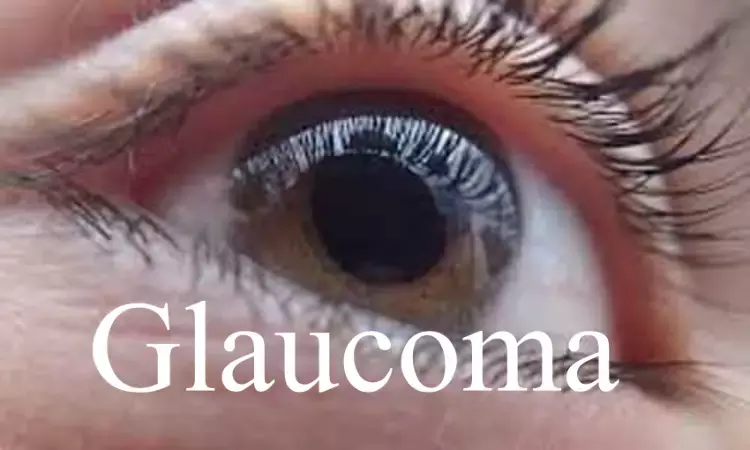- Home
- Medical news & Guidelines
- Anesthesiology
- Cardiology and CTVS
- Critical Care
- Dentistry
- Dermatology
- Diabetes and Endocrinology
- ENT
- Gastroenterology
- Medicine
- Nephrology
- Neurology
- Obstretics-Gynaecology
- Oncology
- Ophthalmology
- Orthopaedics
- Pediatrics-Neonatology
- Psychiatry
- Pulmonology
- Radiology
- Surgery
- Urology
- Laboratory Medicine
- Diet
- Nursing
- Paramedical
- Physiotherapy
- Health news
- Fact Check
- Bone Health Fact Check
- Brain Health Fact Check
- Cancer Related Fact Check
- Child Care Fact Check
- Dental and oral health fact check
- Diabetes and metabolic health fact check
- Diet and Nutrition Fact Check
- Eye and ENT Care Fact Check
- Fitness fact check
- Gut health fact check
- Heart health fact check
- Kidney health fact check
- Medical education fact check
- Men's health fact check
- Respiratory fact check
- Skin and hair care fact check
- Vaccine and Immunization fact check
- Women's health fact check
- AYUSH
- State News
- Andaman and Nicobar Islands
- Andhra Pradesh
- Arunachal Pradesh
- Assam
- Bihar
- Chandigarh
- Chattisgarh
- Dadra and Nagar Haveli
- Daman and Diu
- Delhi
- Goa
- Gujarat
- Haryana
- Himachal Pradesh
- Jammu & Kashmir
- Jharkhand
- Karnataka
- Kerala
- Ladakh
- Lakshadweep
- Madhya Pradesh
- Maharashtra
- Manipur
- Meghalaya
- Mizoram
- Nagaland
- Odisha
- Puducherry
- Punjab
- Rajasthan
- Sikkim
- Tamil Nadu
- Telangana
- Tripura
- Uttar Pradesh
- Uttrakhand
- West Bengal
- Medical Education
- Industry
Diabetes drug may have role in prevention of glaucoma, finds Study

USA: The use of glucagon-like peptide 1 receptor (GLP-1R) agonist significantly lowers hazard reduction for a new diagnosis of glaucoma.
The findings, published in the British Journal of Ophthalmology, support the use of glucagon-like peptide 1 receptor (GLP-1R) agonists in glaucoma prevention.
glucagon-like peptide 1 receptor (GLP-1R) agonists regulate blood sugar levels and are commonly used for the treatment of type 2 diabetes (T2D). Recent studies have shown treatment with the glucagon-like peptide 1 receptor (GLP-1R) agonist NLY01 to be associated with decreased retinal neuroinflammation and glial activation to rescue retinal ganglion cells in a mouse model of glaucoma.
Against the above background, Brian L VanderBeek, Department of Ophthalmology, University of Pennsylvania Perelman School of Medicine, Philadelphia, Pennsylvania, USA, and colleagues aimed to examine whether GLP-1R agonist exposure impacts glaucoma risk using an insurance claims database.
A retrospective cohort of patients who initiated a new GLP-1R agonist was 1:3 age, gender, race, classes of active diabetes medications, and year of index date matched to patients who initiated a different class of oral diabetic medication. To test the association between GLP-1R agonist exposure and a new diagnosis of primary open-angle glaucoma, glaucoma suspect, or low-tension glaucoma, inverse probability of treatment weighting (IPTW) was used within a multivariable Cox proportional hazard regression model.
Cohorts were comprised of 1961 new users of GLP-1R agonists matched to 4371 unexposed controls.
The study yielded the following findings:
- After IPTW, all variables were balanced (standard mean deviation <|0.1|) between cohorts.
- Ten (0.51%) new diagnoses of glaucoma were present in the GLP-1R agonist cohort compared with 58 (1.33%) in the unexposed controls.
- After adjustment, GLP-1R exposure conferred a reduced hazard of 0.56, suggesting that GLP-1R agonists decrease the risk for glaucoma.
"The use of GLP-1R agonist was associated with a statistically significant hazard reduction for a new diagnosis of glaucoma," wrote the authors. "Our findings support further investigations into the use of GLP-1R agonists in glaucoma prevention."
Reference:
The study titled, "Glucagon-like peptide 1 receptor agonist use is associated with reduced risk for glaucoma," is published in the British Journal of Ophthalmology.
DOI: https://bjo.bmj.com/content/early/2021/08/18/bjophthalmol-2021-319232
Dr Kamal Kant Kohli-MBBS, DTCD- a chest specialist with more than 30 years of practice and a flair for writing clinical articles, Dr Kamal Kant Kohli joined Medical Dialogues as a Chief Editor of Medical News. Besides writing articles, as an editor, he proofreads and verifies all the medical content published on Medical Dialogues including those coming from journals, studies,medical conferences,guidelines etc. Email: drkohli@medicaldialogues.in. Contact no. 011-43720751


